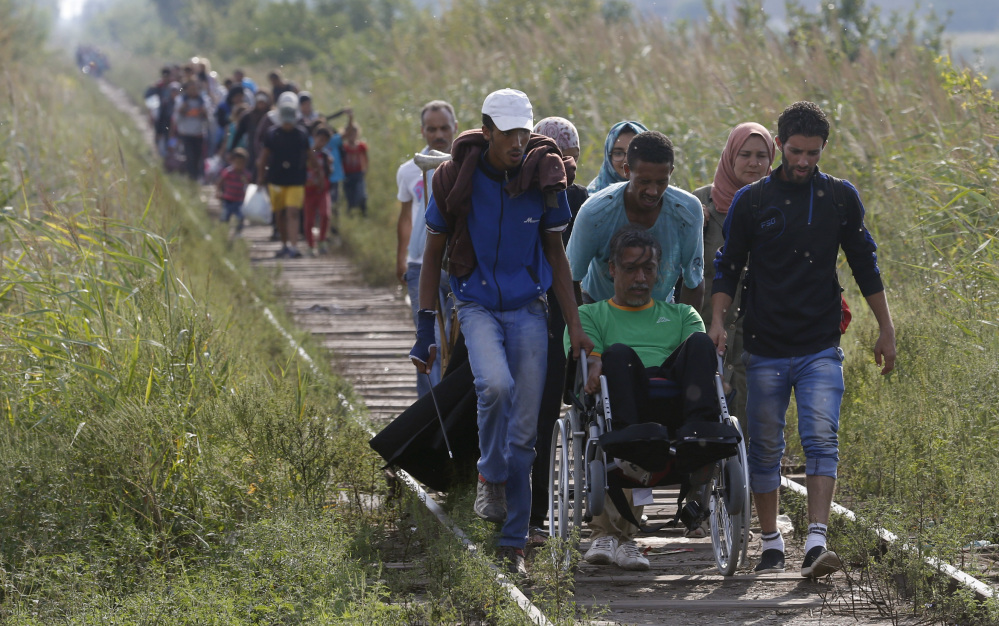BRUSSELS— Thousands of refugees, most fleeing wars in Syria, Iraq and Afghanistan, have been snaking northward through the Balkans in recent days, confronting a Europe woefully unprepared to deal with them at every step.
Most endured a perilous crossing to Greece aboard rafts and boats, some barely fit to sail. They traversed Greece, a nation paralyzed by economic crisis and too poor to handle a flow of people that in July was the highest on record. At the border with Macedonia late last week, they trudged through a wall of riot police, who fought them back with tear gas before relenting. Now, the asylum-seekers, thousands a day, are racing into Hungary, which is rushing to complete a barbed-wire border fence by the end of the month to force them to seek other routes.
It is a long parade of misery unparalleled in Europe in recent years. But the continent has so far failed to agree how to respond. Amid a refugee crisis that by some measures is the worst since World War II, individual nations are being left to improvise their own measures. In Hungary, that is taking the form of 80 miles of barbed wire and fencing.
The crisis is shaking fundamental tenets of European life, including the principle of free movement between most of the nations of the European Union. It is fueling a surge of anti-migrant sentiment in the countries that are housing the bulk of the asylum-seekers, Germany and Sweden. And it is straining the weakest countries, such as Greece, that are on migration’s front lines.
“Unless we do something, we will become a lifeboat sinking under the weight of people holding on to it and drowning everybody, both those seeking help and those offering help,” said Janos Lazar, Hungarian Prime Minister Viktor Orban’s chief of staff, at a ceremony celebrating the foundation of Hungary last week.
The surging numbers of asylum-seekers are being propelled by violence in the Middle East, instability in Africa and poverty in south Asia. Many who fled the war in Syria and stayed for years in neighboring nations are giving up on returning home. Fresh waves are leaving because of the violence of the Islamic State.
Germany alone expects 800,000 asylum-seekers this year, a fourfold increase over 2014. The overall EU numbers have tripled compared to last year.
Copy the Story LinkSend questions/comments to the editors.



Success. Please wait for the page to reload. If the page does not reload within 5 seconds, please refresh the page.
Enter your email and password to access comments.
Hi, to comment on stories you must . This profile is in addition to your subscription and website login.
Already have a commenting profile? .
Invalid username/password.
Please check your email to confirm and complete your registration.
Only subscribers are eligible to post comments. Please subscribe or login first for digital access. Here’s why.
Use the form below to reset your password. When you've submitted your account email, we will send an email with a reset code.